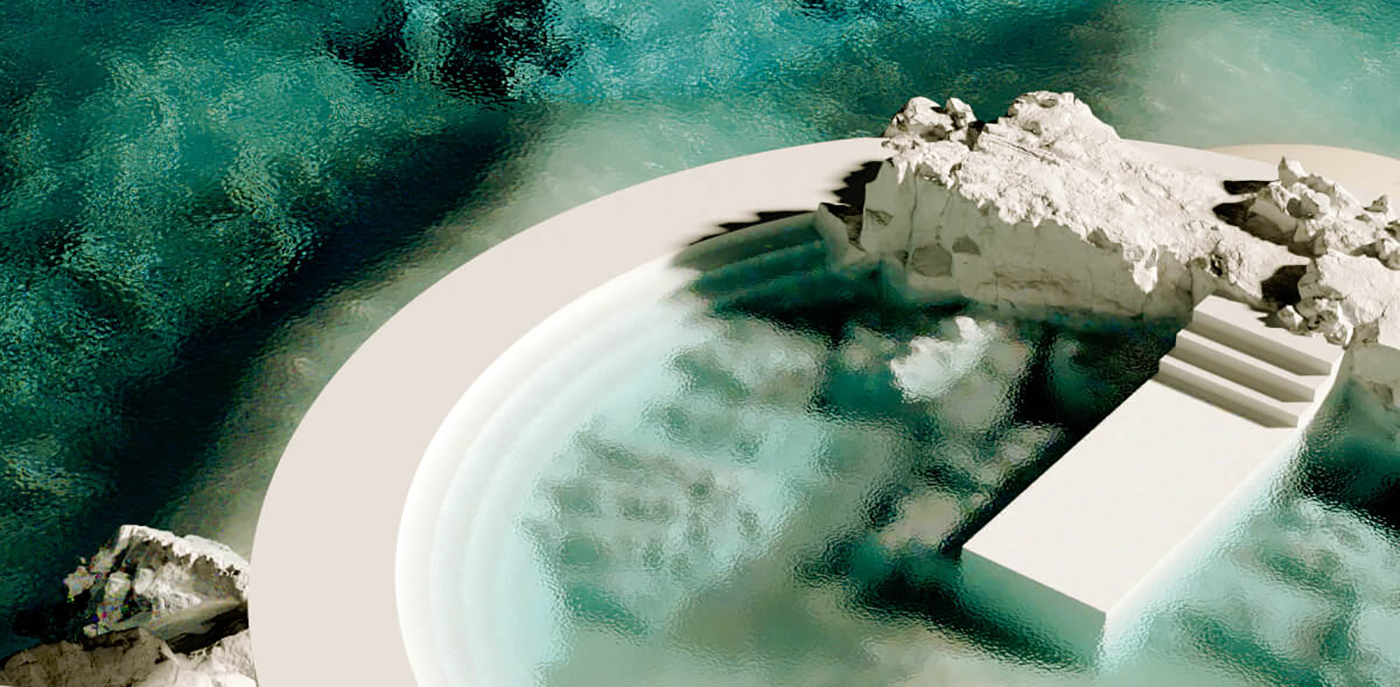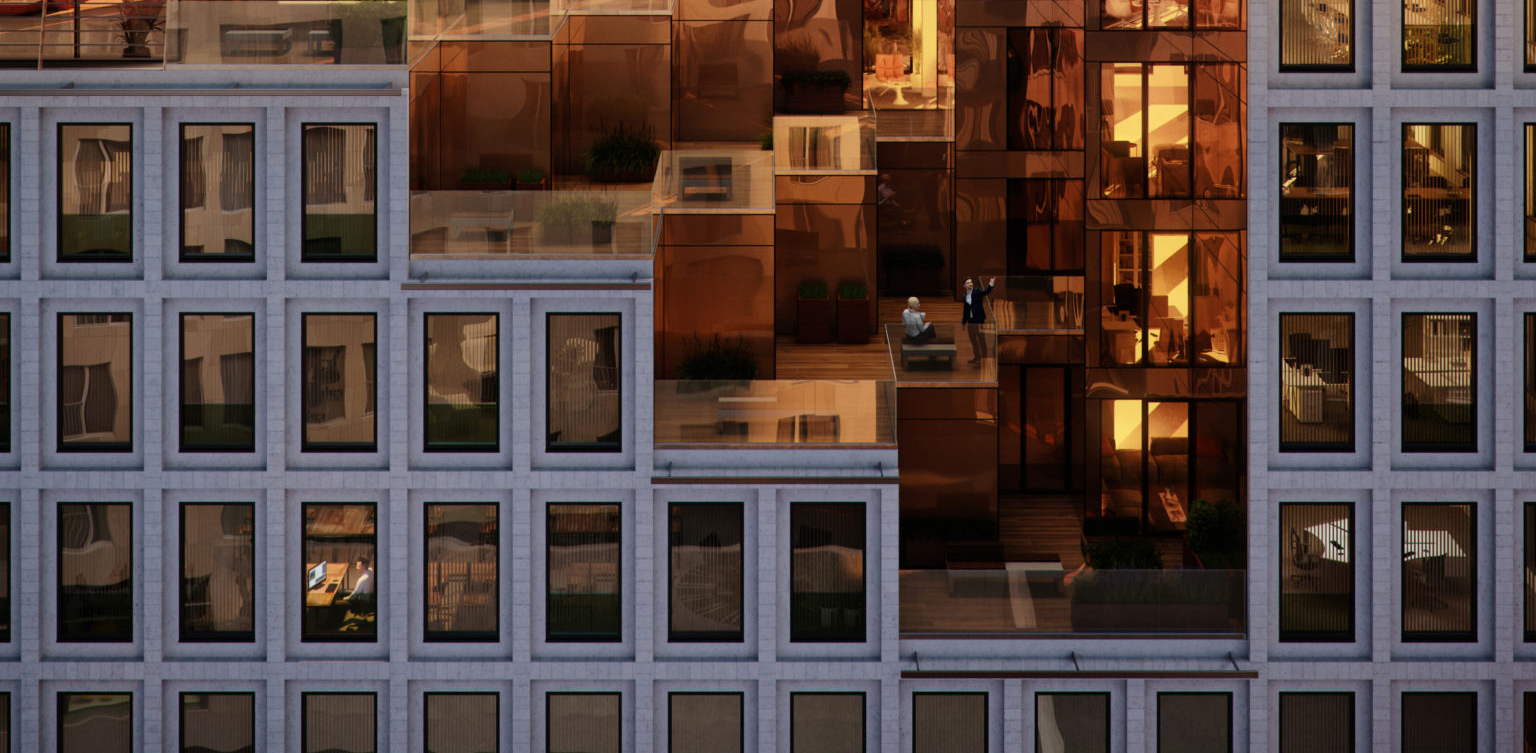Last chance: The 14th Architizer A+Awards celebrates architecture's new era of craft. Apply for publication online and in print by submitting your projects before the Final Entry Deadline on January 30th!
In days before computers, the internet and social media, being outside was the best way for children to play and interact with others. With the increasing reliance on screens and virtual communication methods, the spirit of physical play is dwindling. Not only that, it has led to an increase in feelings of loneliness.
The easiest way to introduce play in busy lifestyles is to make it a part of activities and areas that are already a part of our daily schedules. This is when temporary or permanent urban interventions become very important. Even the addition of simple benches on a long walkway by the sea can dramatically change how the space is used. Designers can change people’s walk from the home or revive dead urban pockets with just small, innovative installations.
Shanghai-based firm 100architects has made this their mission. The firm has pushed aside designing conventional buildings in favor of experimental, small-scale public spaces that create interesting social dynamics. Their attention-grabbing work proposes a new way of urban planning and invites people to walk, jump, pause, play, talk, eat and smile. Explore an array of the temporary installations they have designed over the past few years.
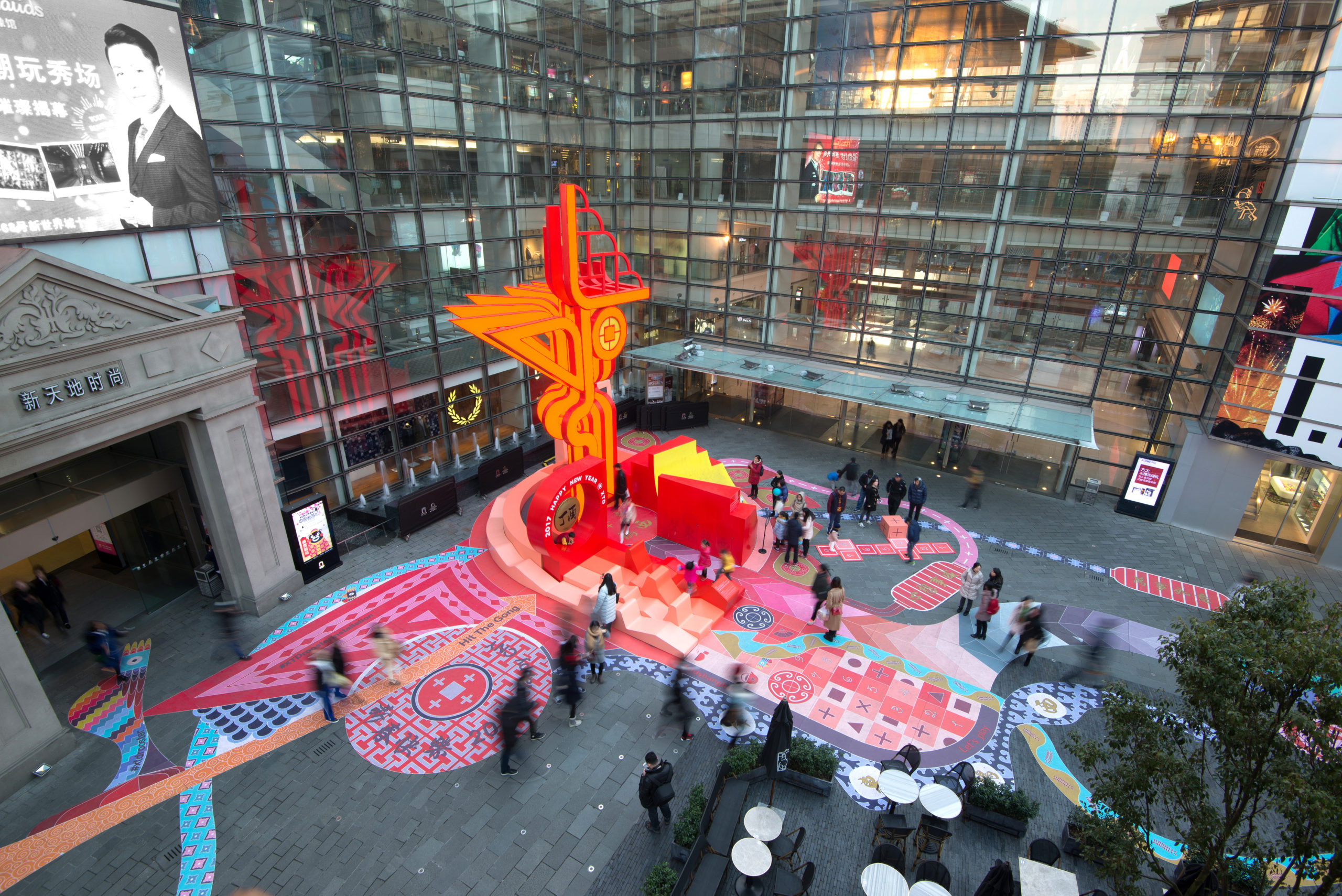
Image by Amey Kandalgaonkar
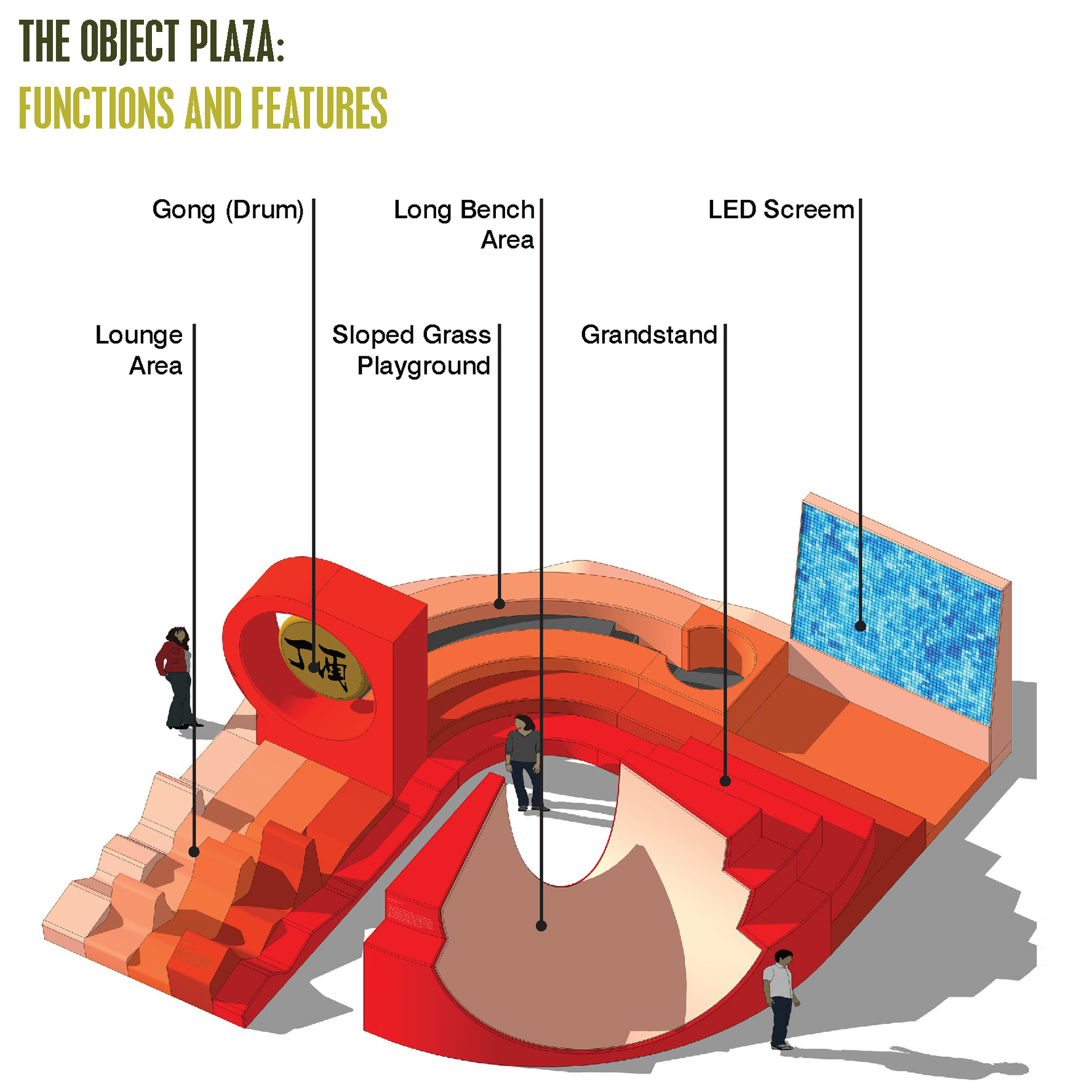
The Rooster by 100architects, Shanghai, China
In 2017, the firm created this installation for the Chinese New Year celebration in Xintiandi, an entertainment and shopping hub. Instead of being a spectacle to observe, the plan was to create something that was interactive and fun. Like its namesake, the design features a tall red body and crown.
Surrounding this minimal construction are 2D and 3D patterns that create seating spaces and surfaces to jump and play on. The patterns on the street are suggestive of childhood games and also reference Chinese symbology related to the Year of the Rooster.
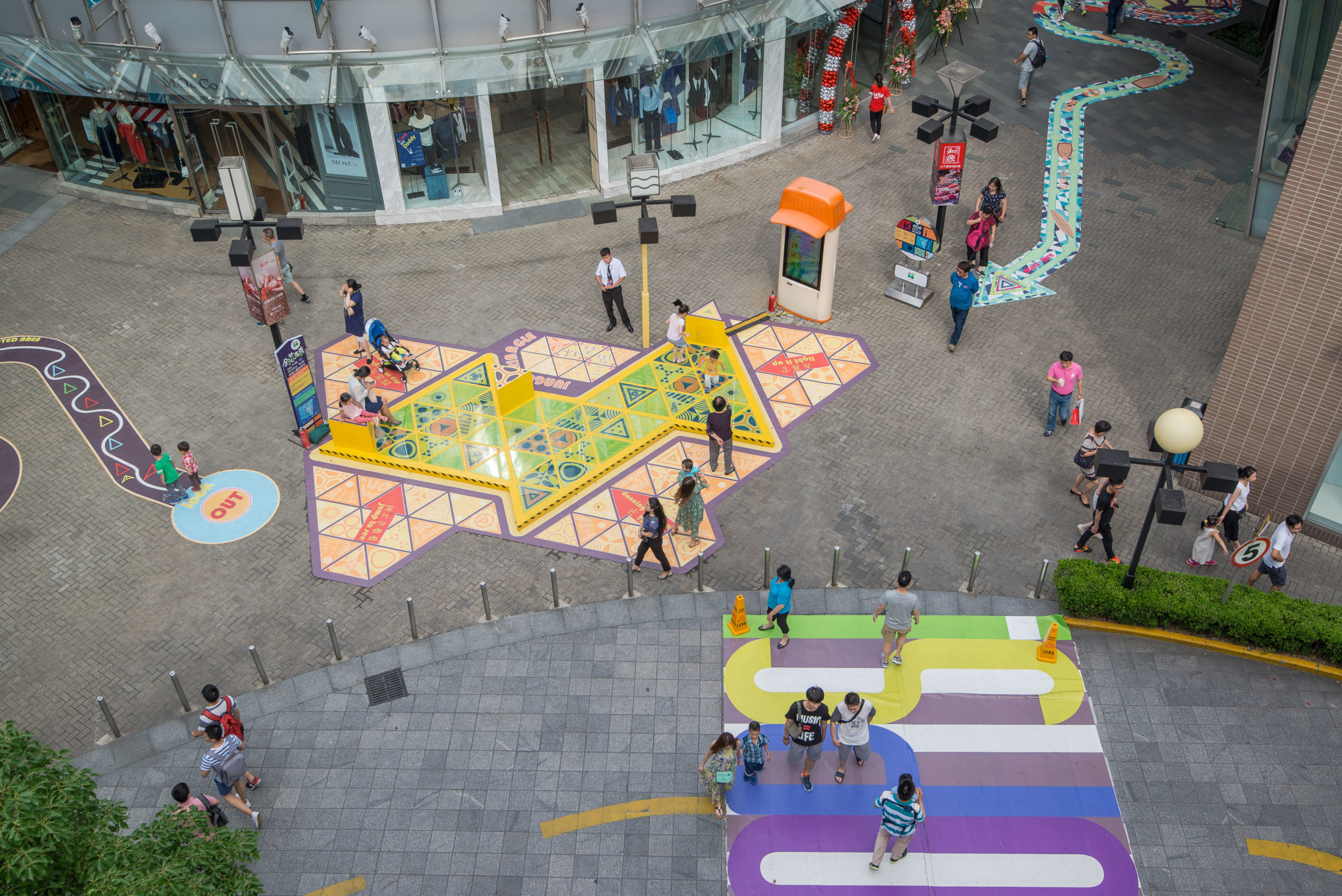
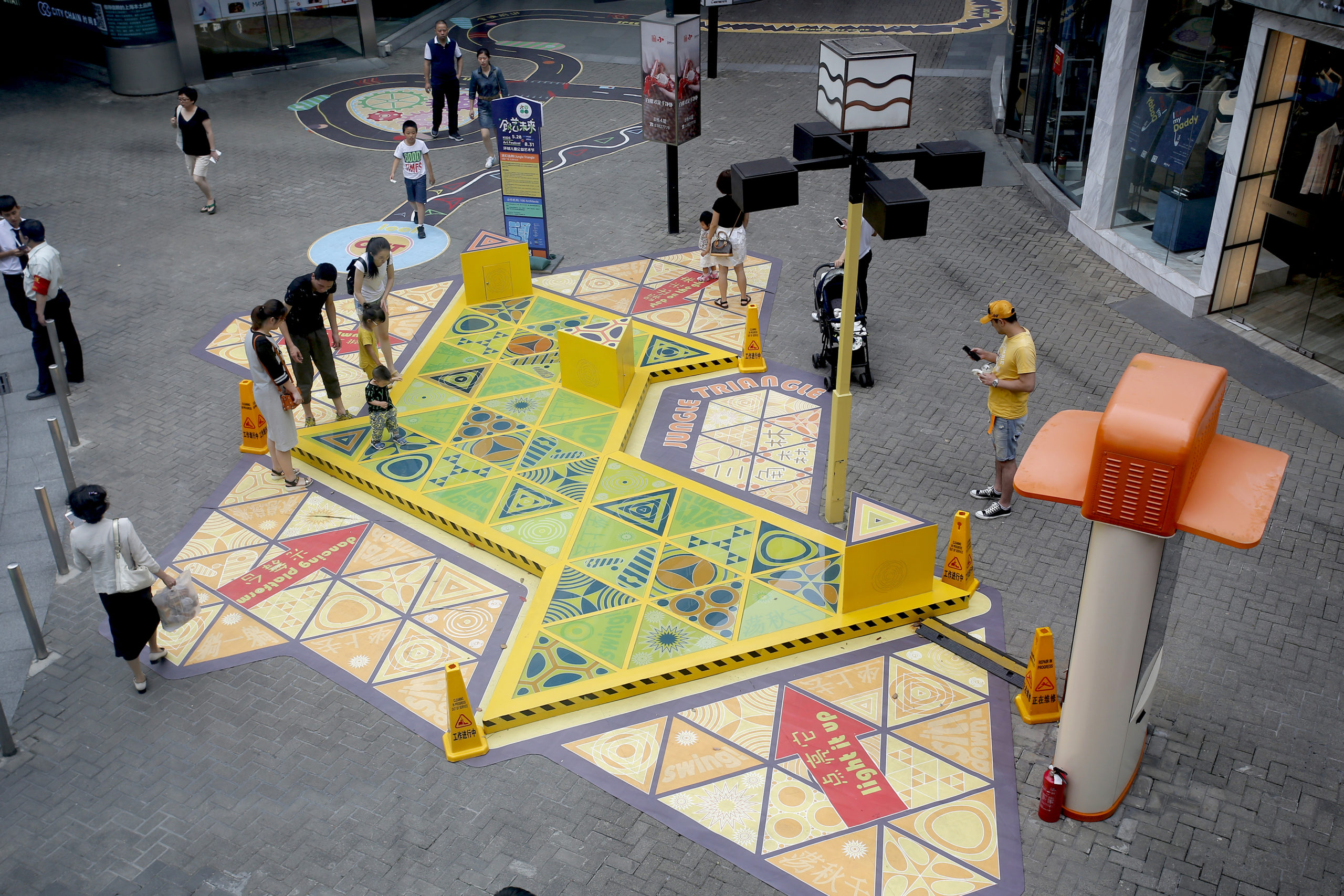
Images by Amey Kandalgaonkar
Tango Triangle by 100architects, Shanghai, China
Children on this retail street will certainly have something to occupy themselves amid long shopping adventures. This floor-level installation caters to both kids and adults and generates interaction opportunities with other families. Accessibility and visibility of storefronts around are ensured due to its low height.
The firm collaborated with designer Maciej Dudek to create a responsive platform that is broken up into triangular panels with light and sound effects. The fractal pattern of this musical platform continues onto the street as simple yellow graphics.
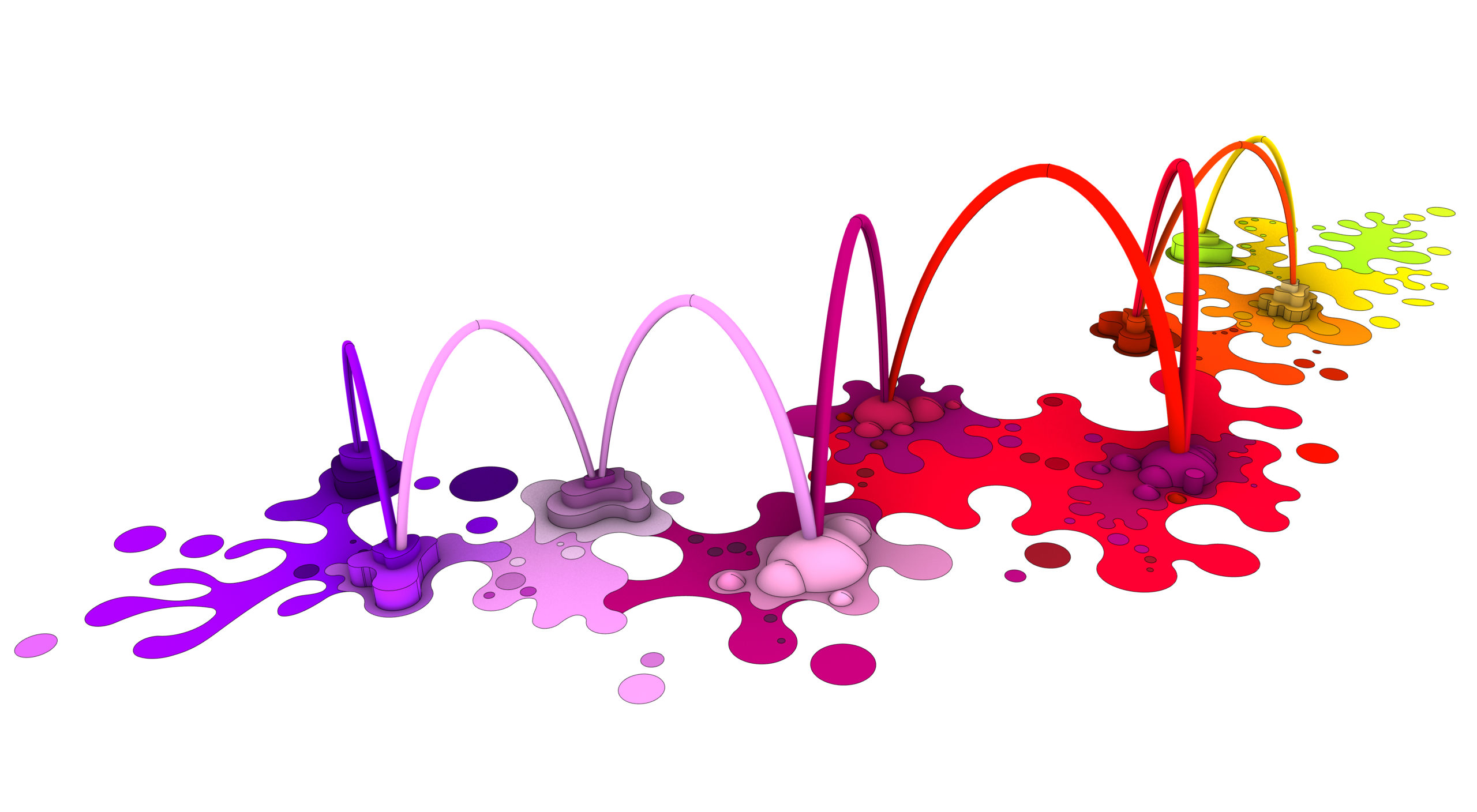
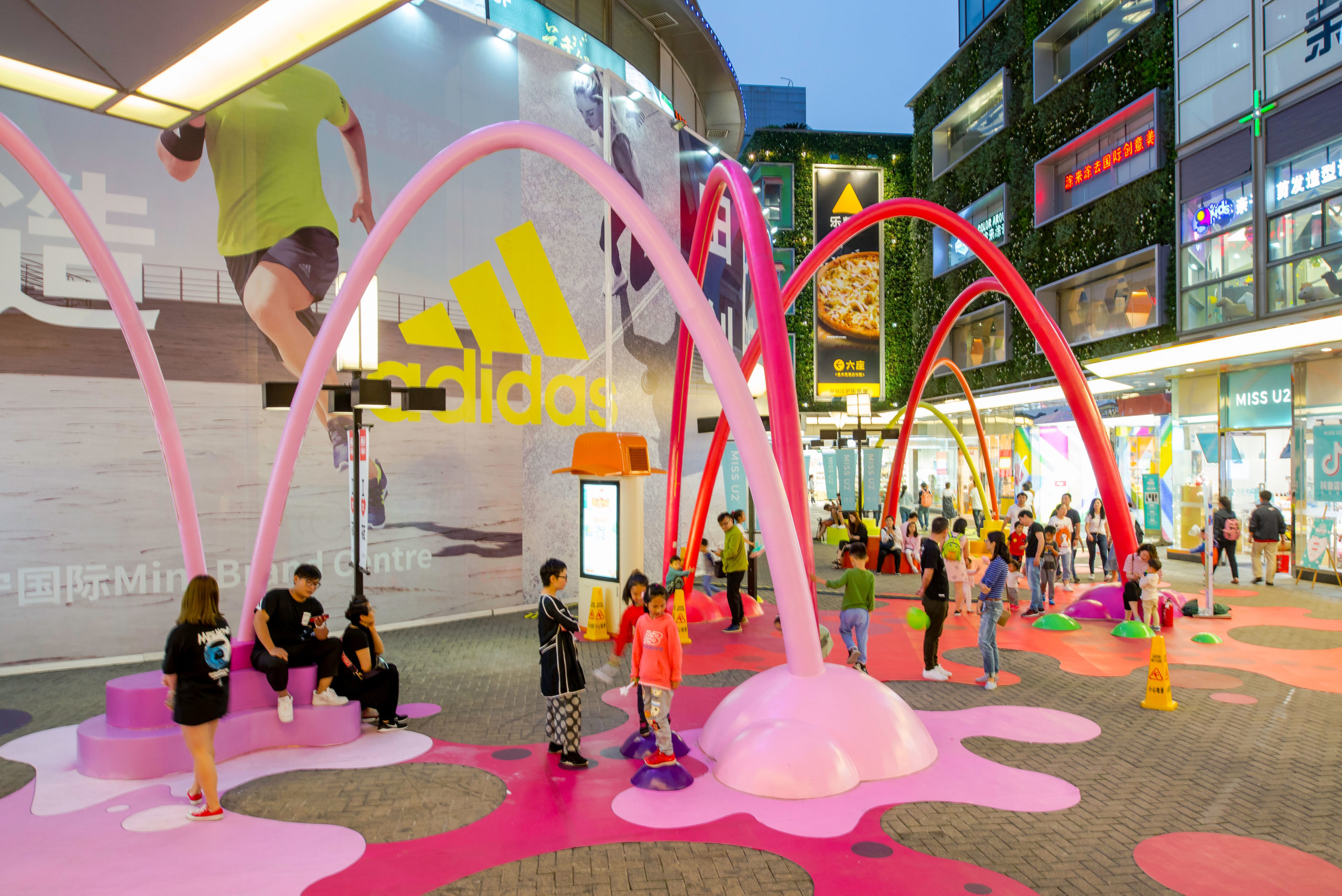
Images by Amey Kandalgaonkar
Paint Drop by 100architects, Shanghai, China
A rainbow of paint splatters connects the main plaza to retail spaces. This multi-color pathway not only attracts and directs customers but also provides seating. Eight catenary arches are put together in a gradient with corresponding paint splatters at their base. Some base joints of this archway feature stepped seats whereas the others end with forms.
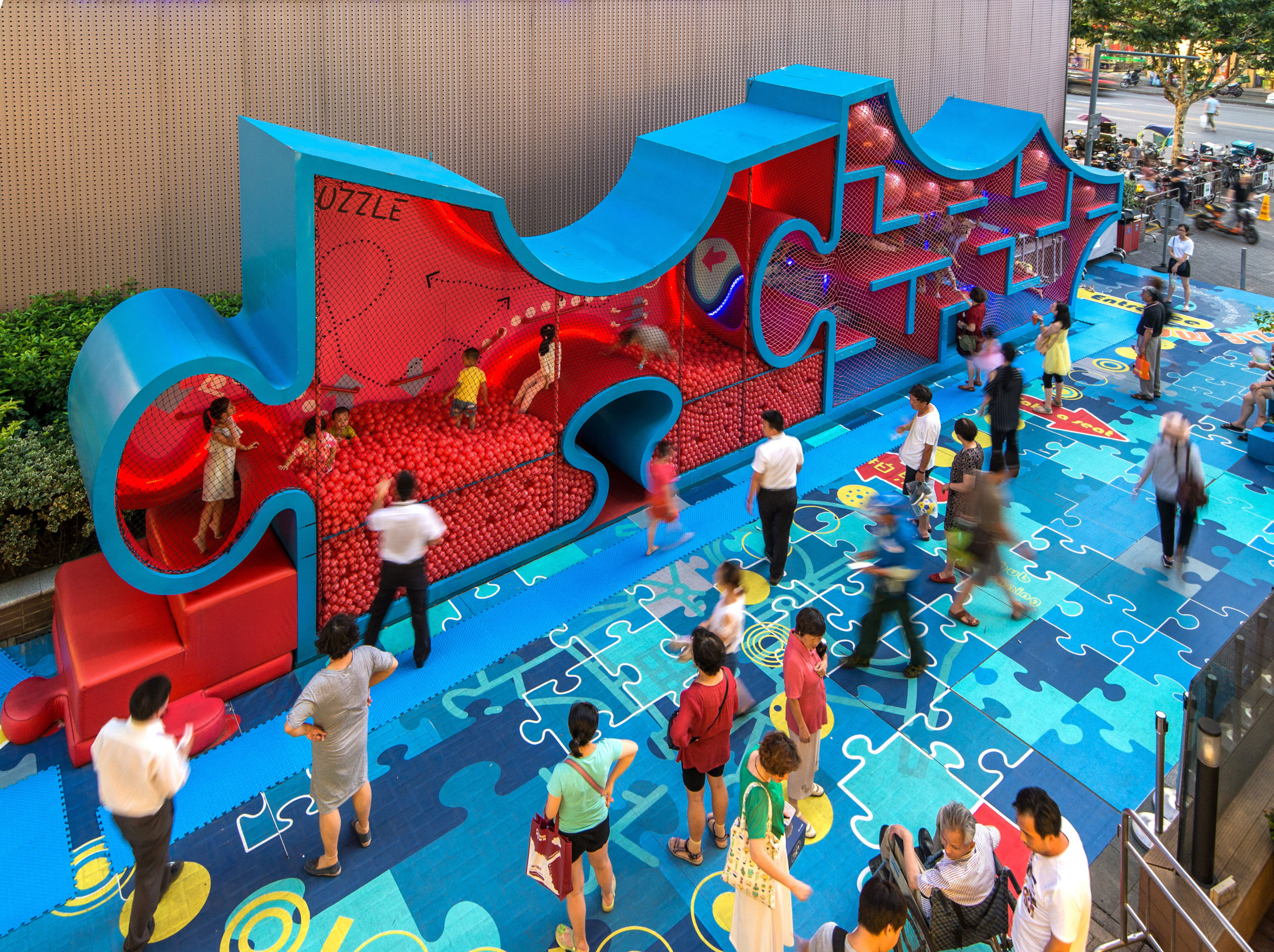
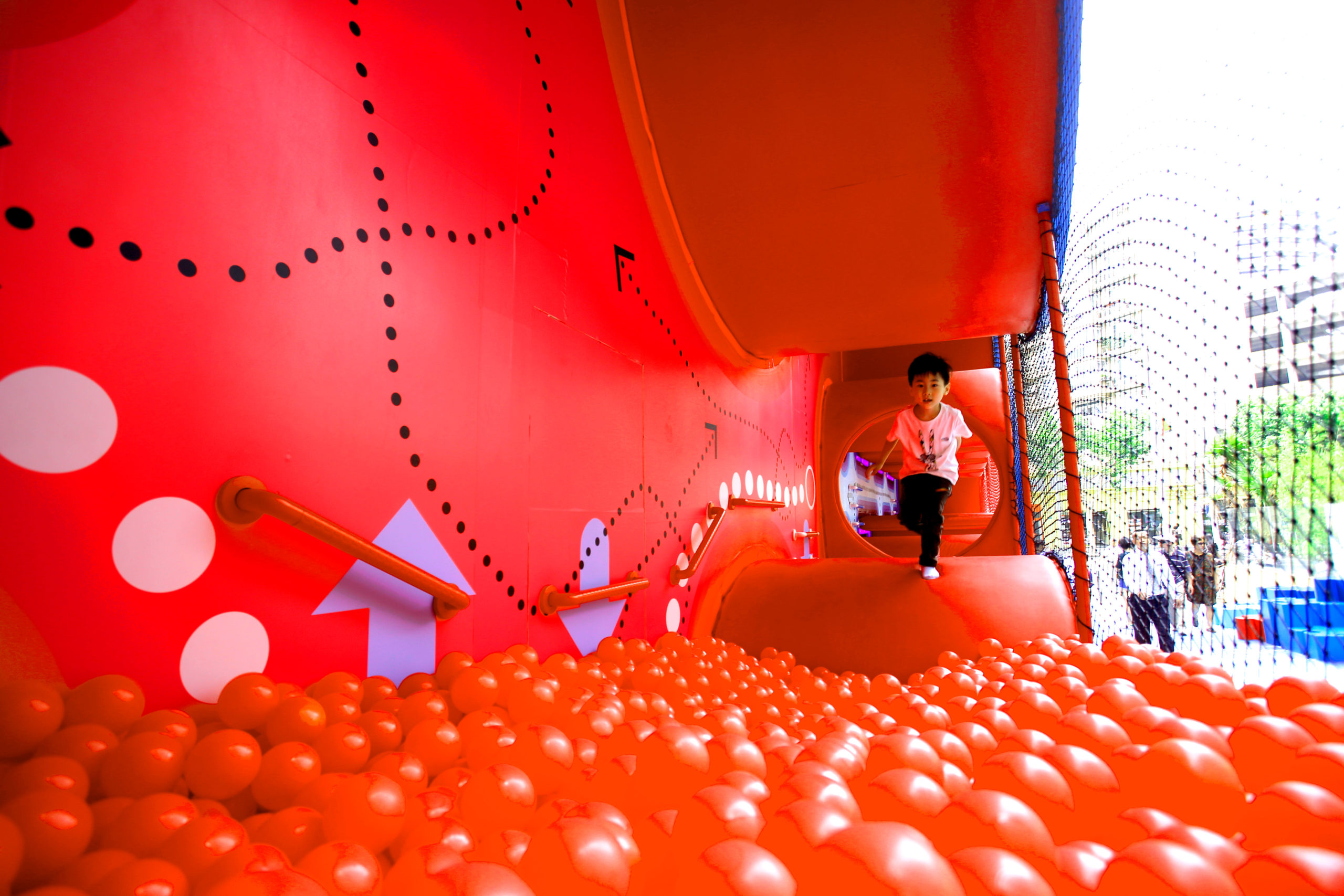
Images by Amey Kandalgaonkar
Puzzle Maze by by 100architects, Shanghai, China
Lack of floor space needn’t always be a deterrent in creating a play area. Shaped like a puzzle, this playground is a vertical maze that is flushed against a wall to leave the narrow pathway open for walking. The maze comprises seats, climbing platforms and a fun ball pit. And as per the studio’s signature style, the pattern is continued onto the floor on a smaller scale with directional indicators.
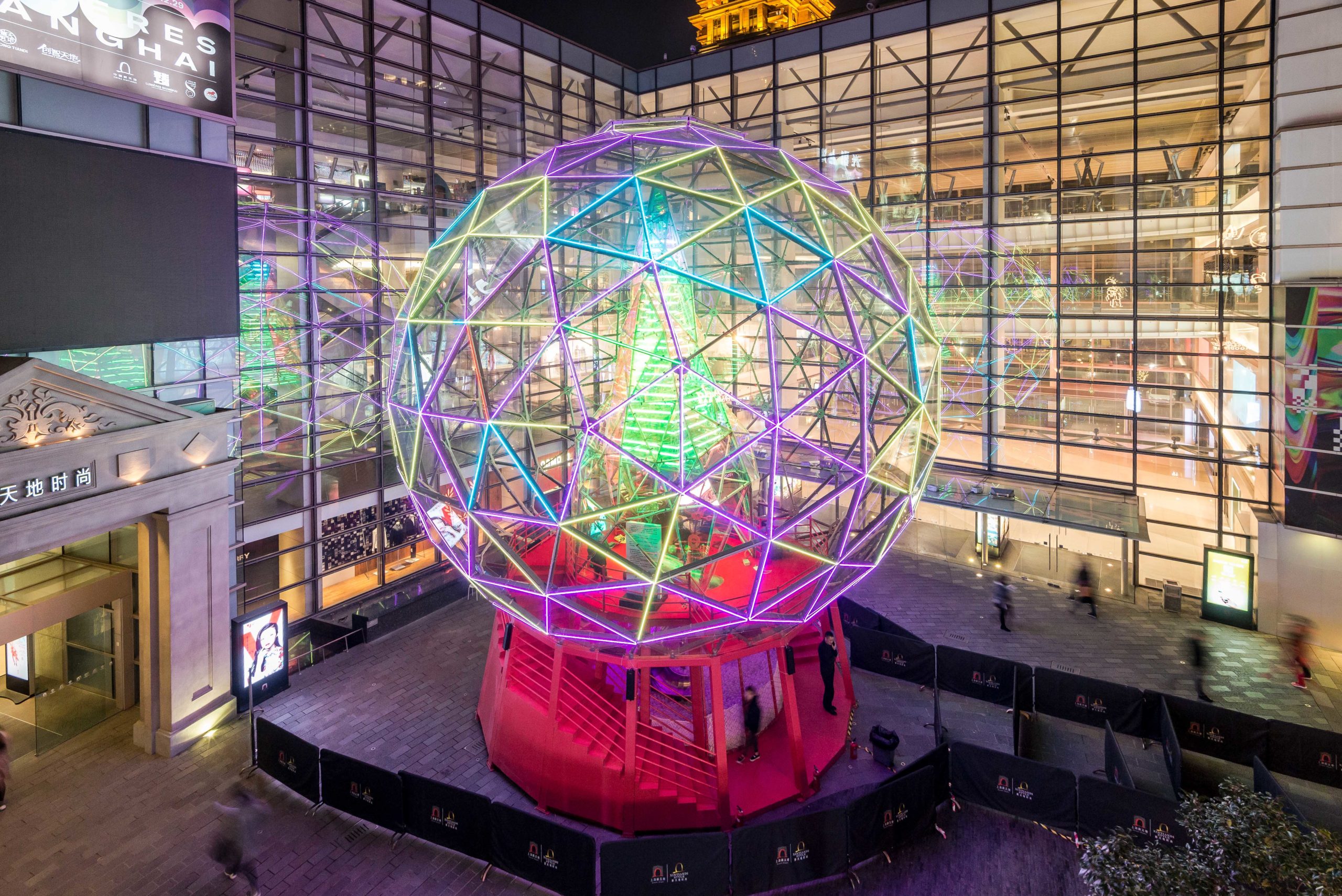
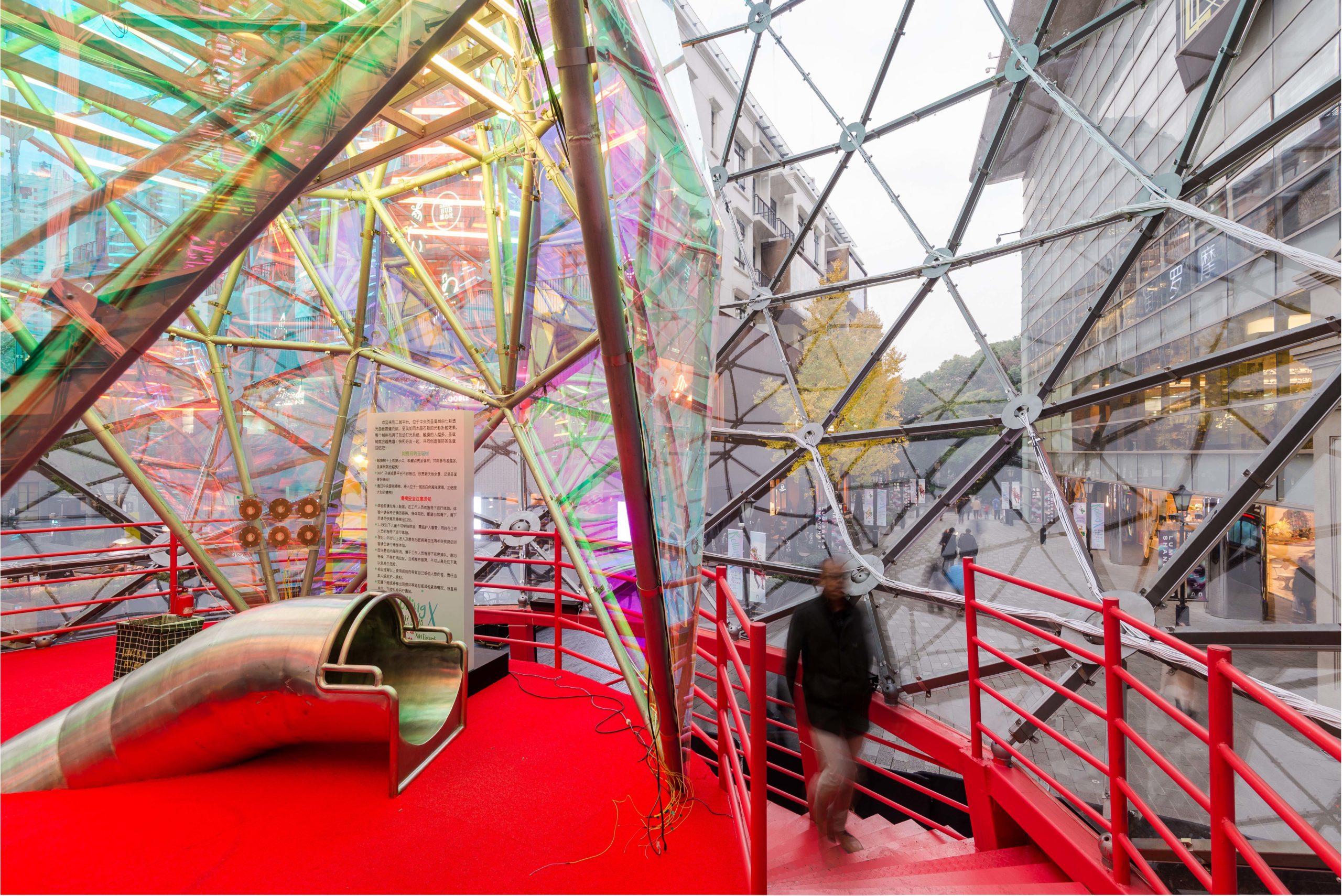
Images by Amey Kandalgaonkar
The Snow Globe by by 100architects, Shanghai, China
This four-level dome features a platform, slide and ball pit. It was part of the festival Lumières Shanghai 2017 and was designed to create a magical Christmas experience for visitors. The studio wanted to move away from a traditional tree setup and create a structure that users could experience and not just look at as they pass by.
The geodesic dome has a steel frame covered with transparent acrylic panels that mimic glass. Within this dome is a sculptural tree made using multi-chromatic dichroic acrylic triangles to reflect light and change colors at different angles.
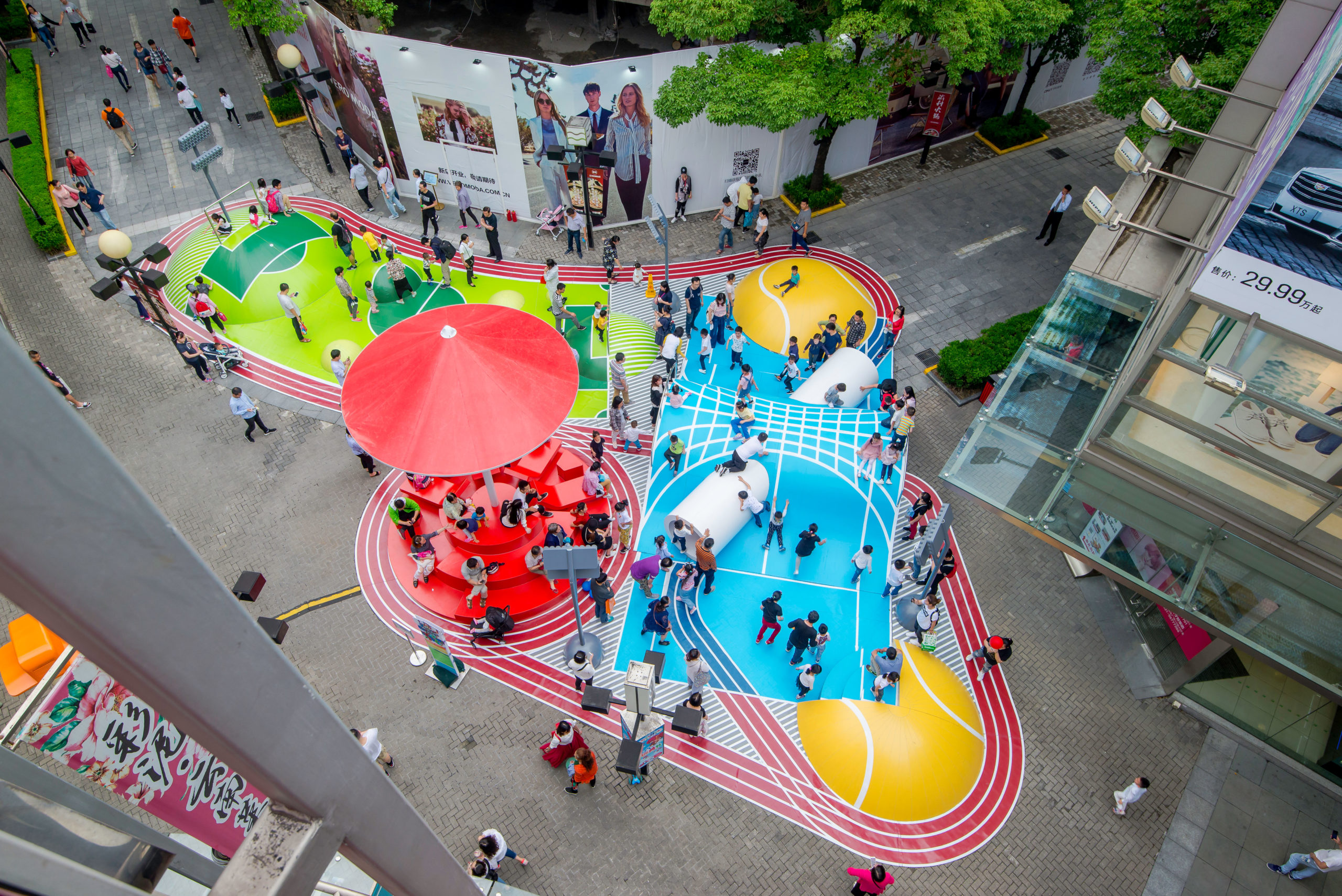
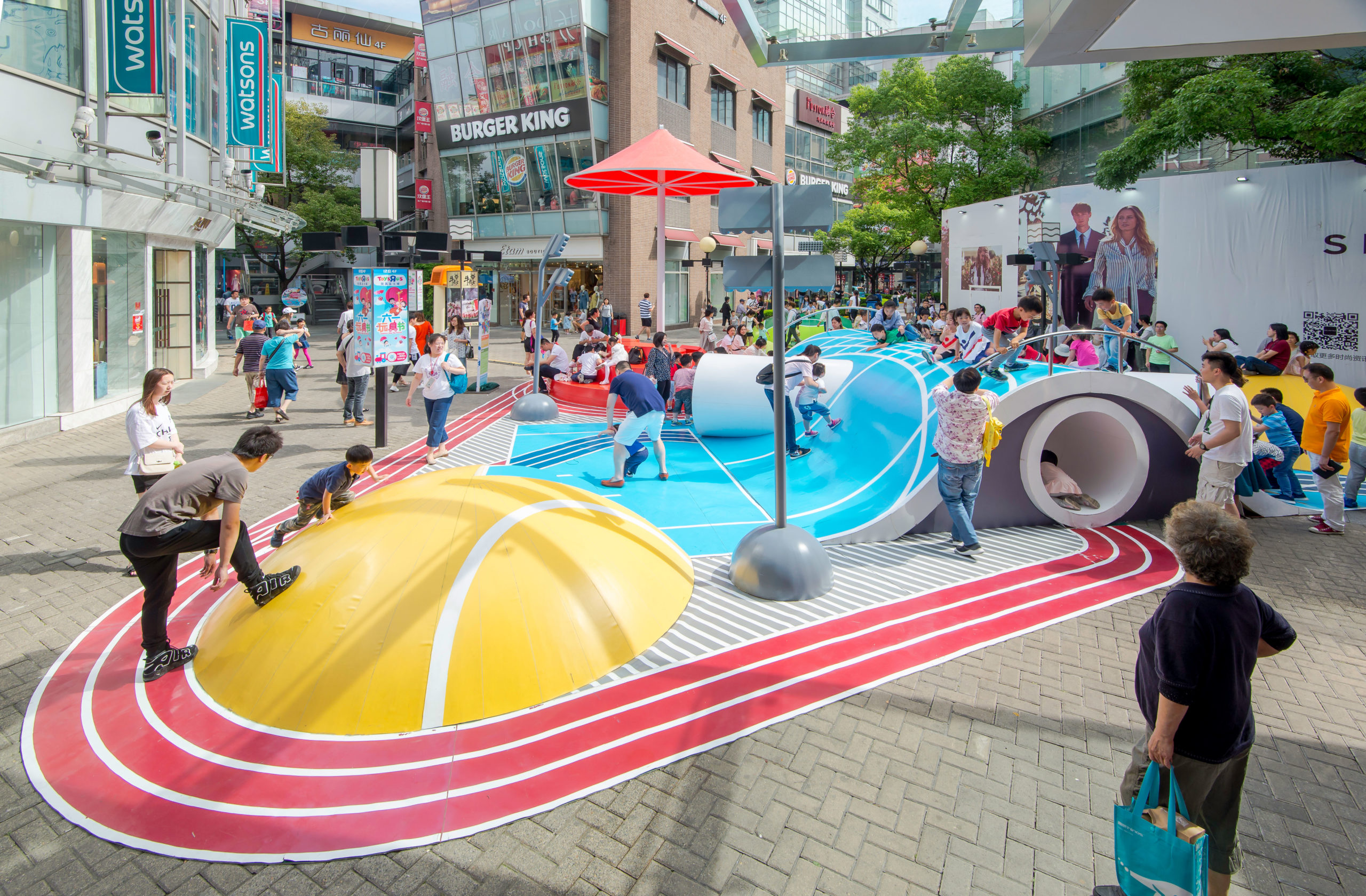
Images by Amey Kandalgaonkar
Olympia by by 100architects, Shanghai, China
Inspired by the FIFA World Cup, this play area seeks to reimagine a football field. Elements from tennis are also woven into the overall design. The surreal playscape is a combination of curves, hemispheres, curved white lines and a tunnel. A track runs around the entire form, reinforcing the sports theme even more. A large umbrella is added to the seating area to protect kids from the heat and add a nice resting spot for parents.
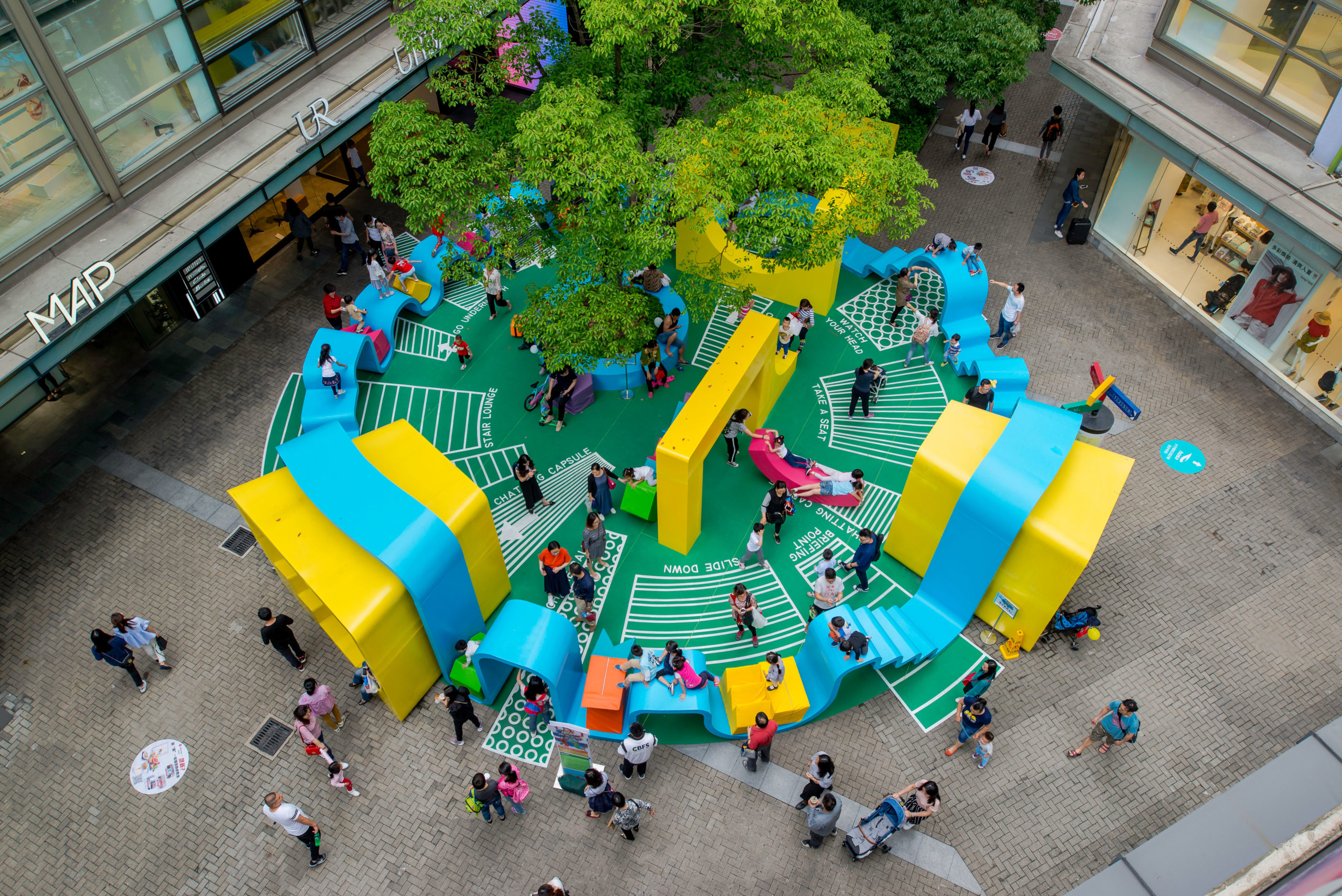
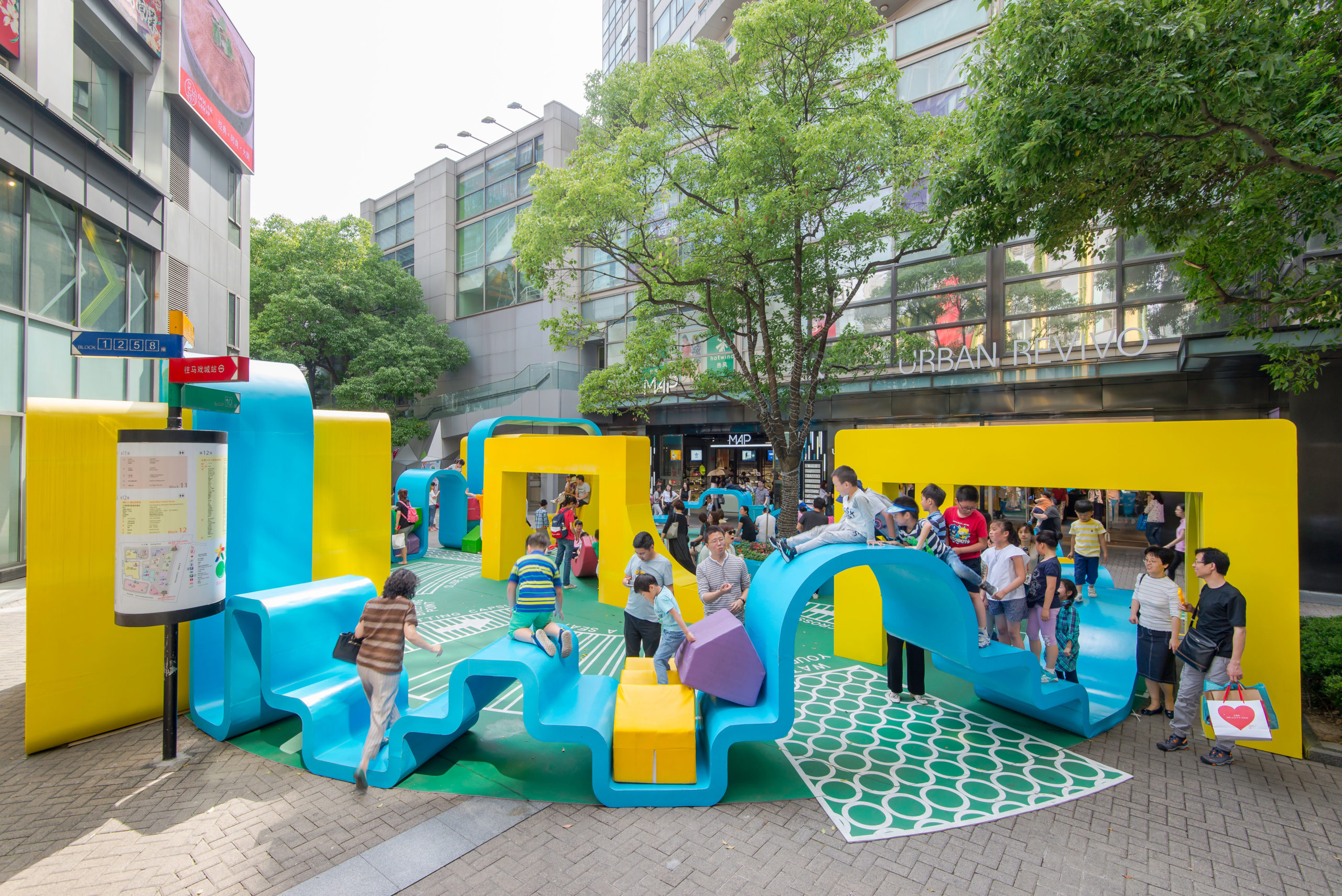
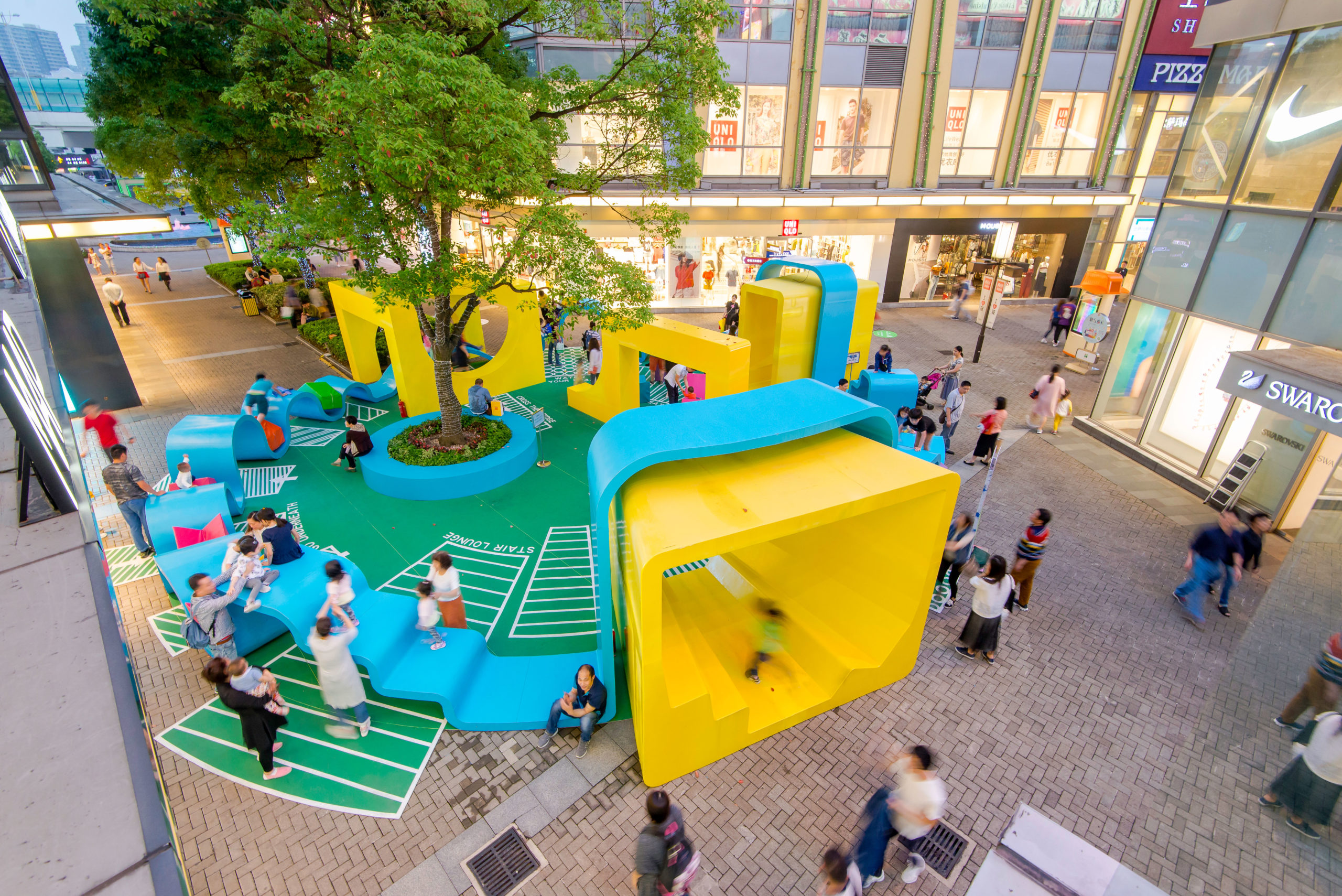
Images by Amey Kandalgaonkar
Blue Ribbon by 100architects, Shanghai, China
A thick blue band crawling over and under different volumes in a circle creates this playground. The ribbon is not only a design element but also encloses the play area for safety. The circular form represents unity, inclusion and perpetual motion. Apart from the bends in the continuous ribbon, additional blocks and profiles are inserted to create ramps, slopes and viewing areas. Large yellow blocks tucked under the blue strip create resting spots for adults. Much like their other projects, the green floor contains text like “SLIDE DOWN”, “GO UNDERNEATH” and “WATCH YOUR HEAD” to direct children.
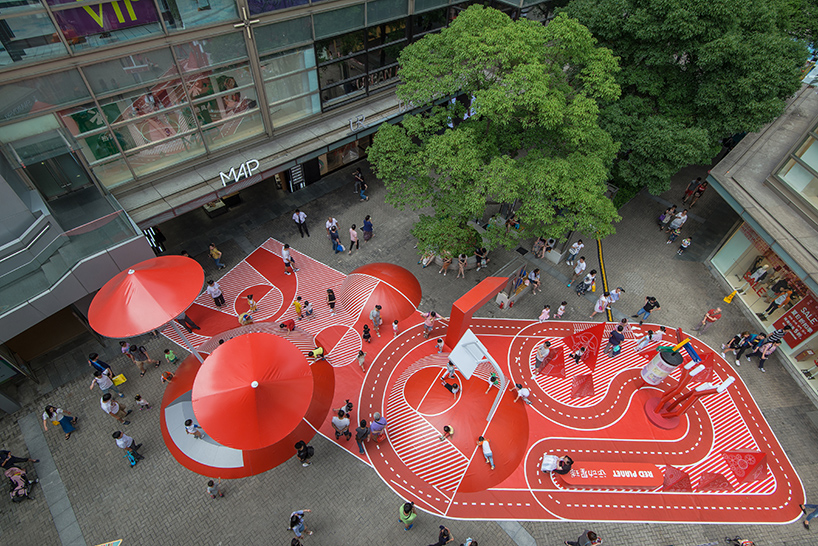
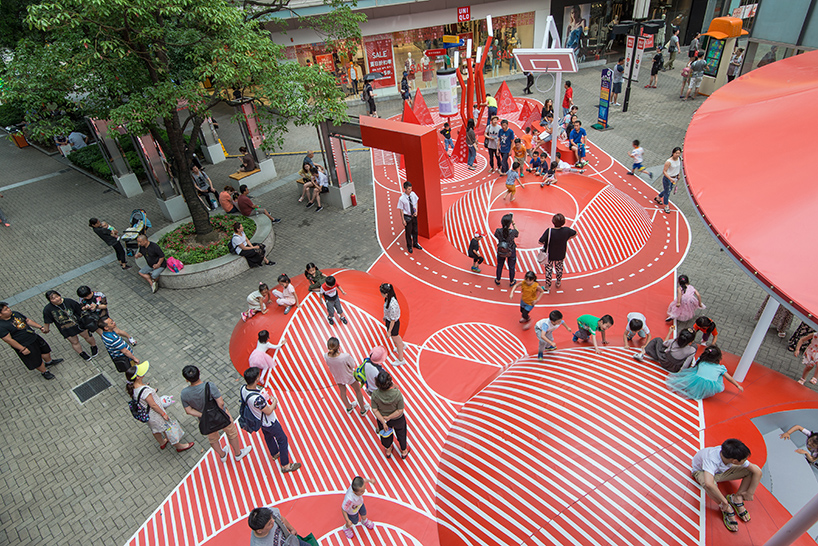
Images by Amey Kandalgaonkar
Red Planet by 100architects, Shanghai, China
This intervention is a brand new take on a traditional basketball court. While the red color is enough to make people stop in their tracks, the artificial topography, eye-catching graphics and whimsical elements are what make them stay. The design provides a platform for children to use their own creativity as they explore this installation and find ways to play and interact with other children. A basketball net, square arch and race track are some suggestive markers added for their enjoyment.
Last chance: The 14th Architizer A+Awards celebrates architecture's new era of craft. Apply for publication online and in print by submitting your projects before the Final Entry Deadline on January 30th!

 Blue Ribbon
Blue Ribbon  Puzzle Maze
Puzzle Maze  Red Planet
Red Planet  Tango Triangle
Tango Triangle  The Rooster
The Rooster  The Snow Globe
The Snow Globe 